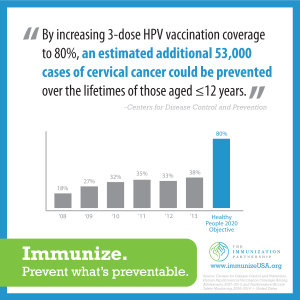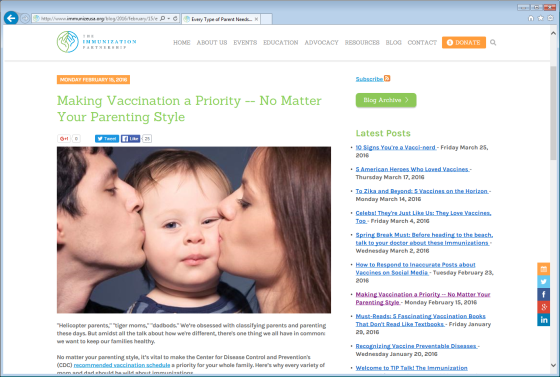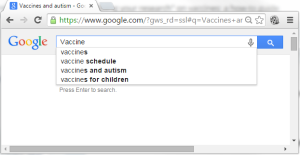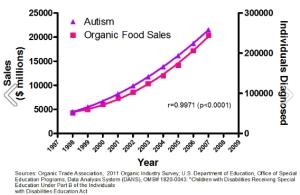The vaccine for the Human Papilloma (HPV) Virus is one of the most important—and perhaps most misunderstood—immunizations we have. The Center for Disease Control recommends that all adolescents get this vaccine at ages 11 to 12, but adherence rates are alarmingly low:  Only 60 percent of girls and 42 percent of boys have received the first of three necessary doses by age 17. Several misconceptions keep the rate so low; here are five excuses to skip the vaccine, and why they’re bunk.
Only 60 percent of girls and 42 percent of boys have received the first of three necessary doses by age 17. Several misconceptions keep the rate so low; here are five excuses to skip the vaccine, and why they’re bunk.
I’m Worried About the Safety and Side Effects of the Vaccine
As with any medical intervention, side effects are a possibility with the HPV vaccine, but studies have shown this vaccine is very, very safe. Side effects are almost always mild, and the most common side effects are minor symptoms like a sore arm. Despite what you might see on social media, no serious reactions have been scientifically linked to the vaccine. The HPV vaccine has been shown to be just as safe as other vaccines given during adolescence.
HPV Isn’t a Big Deal
While most cases do clear up on their own, some cases develop into cancer. The kicker: there’s no way to predict which cases will lead to cancer and which won’t. That’s why every case of HPV is a big deal.
My Doctor Didn’t Mention It, So It Can’t Be That Important
Unfortunately, many doctor’s aren’t recommending the HPV vaccine in a timely fashion—26 percent of them do not recommend it for girls by 11 or 12, and 39 percent don’t mention it to boys of the same age. A lot of docs say this is because they expect discussing the vaccine with parents to be uncomfortable (because it protects from an STD and is administered to preteens). Uncomfortable or not, it’s vital for you to get the shots; bring it up yourself if your doctor hasn’t already.
I’m a Guy
While most people have probably heard HPV can cause cervical cancer, it can also cause a number of cancers in men, including anal, penile and head and neck cancers. And while pap tests can help screen for early signs of cervical cancer, there is no screening options available for HPV-related cancers in men. That’s why vaccination is so critical.
I’m Too Old
The CDC does recommend that everyone get their doses at 11 or 12—it’s most effective when administered well before sexual activity begins. But the shots are still recommended for young people who missed this window (up through age 21 for men and 26 for women). And if you are in a high-risk group (if you have multiple partners, or you’re a man who has sex with men), the shots are recommended through age 26.
I’m Not Sexually Active
HPV is a sexually transmitted disease, but the vaccine is actually most effective when administered before someone is sexually active. That’s one of the reasons it’s recommended in early adolescence. Rather than waiting until you’re sexually active, get it now. When you do become sexually active (including engaging in oral sex), you know you’ll be fully protected.
I’m Not in a High-Risk Category
It’s true, men who have sex with men and those with multiple partners have a greater risk of contracting HPV than the general population. But all it takes to expose yourself is sleeping with one infected person. In fact, the CDC estimates that about one in four people in the U.S. are currently infected and nearly all sexually active adults will get HPV at some point in their lives—it’s an incredibly common virus, and everyone needs to be protected.
I Use Condoms
As with any STD, condoms are an important HPV prevention tool, but they don’t offer full protection. While the virus can’t be spread through latex, it can infect portions of the genitals that condoms don’t cover. Safe sex is not enough to protect yourself from HPV.




 After all the champagne and midnight kisses, it’s now time to get started on your resolutions. Here are five resolutions you can make in 2016 to help protect yourself and your community.
After all the champagne and midnight kisses, it’s now time to get started on your resolutions. Here are five resolutions you can make in 2016 to help protect yourself and your community. As we move into 2016, we take a look back on The Immunization Partnership’s amazing year. Thanks to the support of people like you, we were able to advocate, educate, and pass immunization-related legislation like never before. Here are some of our favorite accomplishments from the last 12 months.
As we move into 2016, we take a look back on The Immunization Partnership’s amazing year. Thanks to the support of people like you, we were able to advocate, educate, and pass immunization-related legislation like never before. Here are some of our favorite accomplishments from the last 12 months. 
 The holidays are coming up, and that means reconnecting with family and friends—and meeting new family members (newborns anyone?). Some of those
The holidays are coming up, and that means reconnecting with family and friends—and meeting new family members (newborns anyone?). Some of those 

